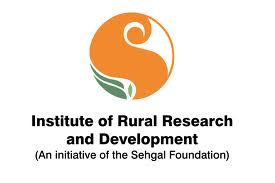Sustainability
Beating a rope thinking that it is a snake, is futile - Why evict people from their habitat, their own ecosystems
Posted on 17 Aug, 2012 04:39 PMThis article questions the rationale for eviction of forest dwellers from National Parks. This is against the Law. The Wild Life Act was passed when there was no problem regarding poaching. At that time the objective was to create inviolate wilderness areas, a concept that is typically American.
"Water governance in Assam: Priorities for knowledge-based interventions" - Report of a consultation organised by Aaranyak, at Guwahati, Assam in June 2012
Posted on 17 Aug, 2012 03:35 PMAssam, the biggest of the seven North-eastern states of India, is a melting pot of various communities from various regions. The state with abundant natural resources and rich historic heritage, however, is faced with unique challenges.
A story of resurgence - A video featuring the revival of Doling lake, Sikkim
Posted on 17 Aug, 2012 03:26 PMIn an unique attempt by the Government of Sikkim, the lake that was once seasonal, now has water throughout the year.
Water has been ignored globally as the engine for green growth, says Joppe Cramwinckel, Director Water, WBCSD
Posted on 15 Aug, 2012 02:06 PMArticle Courtesy : Sustainability outlook
Author: Aparna Khandelwal
Director Water at World Business Council for Sustainable Development talks about the low levels of awareness in businesses about the importance of water as a resource and the current roadblocks being faced in solving water related challenges.
Water quality assessment of the sacred Himalayan rivers of Uttarakhand - A study using biological assessment methods
Posted on 13 Aug, 2012 10:28 PMThe present study published in Current Science deals with water quality assessment of rivers in Uttarakhand using biomonitoring assess
National conference on women-led water management: Strategies towards water sustainability in rural India, IRRAD and UNICEF, November 5-6, 2012, Gurgaon, Haryana, call for papers- Submit by August 31, 2012
Posted on 13 Aug, 2012 01:38 PM

Organisers: Institute of Rural Research and Development (IRRAD) and UNICEF
Venue: S.M. Sehgal Foundation Auditorium,
Sector 44,
Gurgaon, Haryana
IRRAD is an initiative of the S M Sehgal Foundation, registered as a Trust since 1999 to further the wellbeing of rural communities in India. IRRAD directly engages with communities, implements Integrated Sustainable Village Development in select village clusters and promotes citizen participation in rural governance combined with sustainable development solutions.
Rainwater harvesting intervention in Chured-Dhar village in Uttarakhand
Posted on 06 Aug, 2012 12:43 PMMore erratic and extreme rainfall events leading to longer dry periods sometimes and high water availability at other times in the hilly region of Uttarakhand. Owing to the longer dry periods, available water sources are no longer sufficient, and groundwater levels drop even further, resulting in longer distances to fetch drinking water.
What does it take to scale up rural sanitation ? - A working paper by Water and Sanitation Program
Posted on 04 Aug, 2012 10:22 AMThe deplorable condition of sanitation facilities in developing countries, has been gaining enormous attention in the recent times. It is no longer a “forgotten issue”.Though measure and several initiatives have been taken by national governments and international agencies to address this problem, yet a lot has to be done and learned about dealing with it.
Living rivers, dying rivers: River Godavari
Posted on 04 Aug, 2012 08:52 AMThe lecture dealt with 'Perceptions of a river, life and the idea of floods in politics and commerce', with the metaphor of control over rivers dating back to the times of Sir Arthur Cotton, who built the Dowlaiswaram anicut on the Godavari in 1863.

Is mitigation of climate change in agriculture necessary ? - A lecture by Dr Eva Wollenberg, CCAFS at IARI, New Delhi
Posted on 03 Aug, 2012 08:32 AMIndia like many other developing countries has focused its agricultural policies on increasing agricultural production to meet food security.





